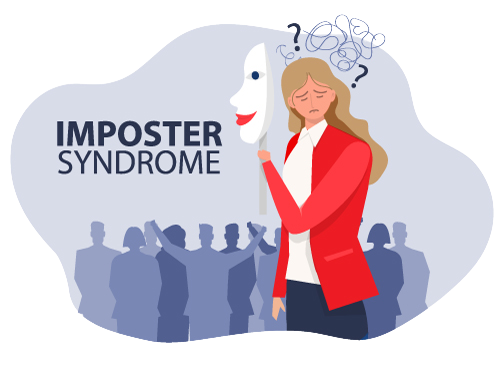THE ROLLERCOASTER RIDE
No doubt if you’re reading this you have already experienced countless emotions surrounding your decision (or indecision) to leave the classroom. Buckle up because that is only the beginning!
If you are a teacher and even considering a career change, it means you have already dabbled in frustration, sadness, guilt, helplessness, and maybe even anger and despair. Few people enter into teaching thinking “Maybe I’ll try this out for a while and see if I’ll like it. You’ve already committed so much of yourself to preparing for a teaching career, fully aware of the inadequate paycheck and long hours. Every one of my teacher friends went into it for the same reasons I did - love of learning and teaching with a passion and determination to make a difference in the lives of the children who come through our classrooms.
Most often fear holds teachers back from taking the leap. I spent years wishing I could leave but feeling trapped. I feared that without my teacher identity no one else would see my value. I feared that I could never find something I had this much passionate for. I was afraid there were no jobs out there that could still to pay my bills and keep my family on track. It turns out that just about every teacher who has successfully transitioned out of the classroom started with these fears. (Listen to these TCC podcast episodes: “What If You Don’t Get a Job Before Summer is Over?” and “How Fear Holds Us Back.” Like many former teachers I have met, I let fear hold me back until I couldn’t bear the thought of one more day of teaching much less another year.
When you resign from your teaching position, you’ll likely experience elation and relief with the weight of all of the stress of the job suddenly lifted from your shoulders. Enjoy it! Breathe it in! You have given so much of yourself and you have finally made the choice to put your health and overall wellness first for a change. Some teachers report a sense of regret or guilt creeping in next. If so, check out this TCC podcast episode, “How to Battle Your Teacher Guilt.” Personally, the only guilt or regret I felt was knowing I wouldn’t be seeing my closest teacher friends every day.
My recommendation is that you should formulate your next steps BEFORE resigning, if at all possible. If your mental health is highly at risk, then get out ASAP. That needs to come first. Period. Having a well-thought-out plan won’t completely protect you from anxiety and all of the ups and downs of this journey, but it will reduce them significantly and help you hit the ground running with some confidence.
Me and My Shadow
I was highly confident in my ability to reinvent myself and be a valuable asset in any role. However, Imposter Syndrome was always lurking in the shadows and jumping up randomly along the way. The main reason for my Imposter Syndrome was the need to present myself as something other than the talented teacher I knew I was. You may have been your state’s Teacher of the Year, but that means nothing to the corporate world and won’t get you an interview. In order to get corporate America to pay attention to your resume you need to present yourself as someone with experience in that role. In my teaching roles, I have been an instructional designer, curriculum developer, data analyst, eLearning designer and developer, project manager, team facilitator, assessment specialist, and customer success manager every single week of my 35-year career. But my job title has always been just “Teacher.” As teachers, we have been conditioned to feel that the world sees us as less professional, less everything than our friends in the corporate setting. Saying I was an instructional designer still felt like a lie. To make this happen, you are going to have to suppress the language of an educator and describe yourself and your experience using only corporate language. I was absolutely experienced in each of the roles I listed above, but the fact that my contract never said anything but “Teacher” made me feel like a fraud saying much less writing anything else on my resume. We have also been conditioned to think the proper path to any profession is through a specialized college degree, and we are trying to cut the line with a few months of tutorials and research under our belts. I’ll talk more about my resume and interview experience in future posts, but know that Imposter Syndrome is a common companion for any teacher pursuing a career change. Do NOT let it stop you from reaching this goal!
Anxiety and Insecurity
These emotions go hand-in-hand with Imposter Syndrome, and the pressure of completing this transition in the time you have set can exacerbate the anxiety. It’s important to have a plan and timeline to follow, but it’s crucial that you break it down into smaller action steps to check off as you go. The more I dwelled on the long-term plan and my timeline the stronger my anxiety was. There was so much I still needed to do, and I doubted my ability to get it done in time. Focus on the action steps and celebrate your accomplishments along the way.
I felt insecure presenting my projects for feedback in the bootcamp. I had to fight insecurity as I offered feedback to other bootcampers. Pushing myself through that allowed me to grow exponentially. The more I immersed myself into learning and practicing instructional design, the more secure I began to feel.
Burnout
If you are changing careers, you are probably not a stranger to burnout. I was already burned out from teaching, and then I was adding more to my plate working on my transition after school and weekends. I definitely had moments of burnout during my transition, but it was very different from teacher burnout. For teachers, having days off and summers to recharge only helps in the short term. My teacher burnout ended the day I retired. This new burnout was simpler. Doing anything with a sense of urgency 24/7 will lead to some sort of burnout. Giving myself permission to take a day off here and there eliminated it and the excitement of a better future motivated me to get right back to it. It happened most when I was revising a project for the umpteenth time and I found some tiny detail I had missed, sending me back to the drawing board one more time.
It’s All Normal
Reading over my words here, I realize I may have caused you to rethink taking this leap. I just want you to know what to expect. Almost every transitioning teacher experiences a similar emotional rollercoaster ride. It’s important to find a community of teachers going through the same things and wanting to support each other. In the Teacher Career Coach community, there were also former teachers who successfully transitioned into other careers ready to give back and help others any way they could.
I’ve been focusing on the lows and there are plenty of highs in this journey as well. The sense of freedom I felt upon leaving the classroom never left. Each new skill I gained brought with it a sense of accomplishment and excitement about being one step closer to my goal. Immersing myself in a new community of professionals within the bootcamp, who believed in my ability to become an instructional designer, was empowering.
Fear, anxiety, insecurity, and Imposter Syndrome all came along with me to my first interview too. However, once I experienced that first interview, they were reduced to a healthy level of nerves going into the rest. It IS a rollercoaster ride, but the lows of the ride pale in comparison with the everyday lows of teaching public school. Every bit of myself I poured into this transition process was completely worth the end result! You can do this too!



